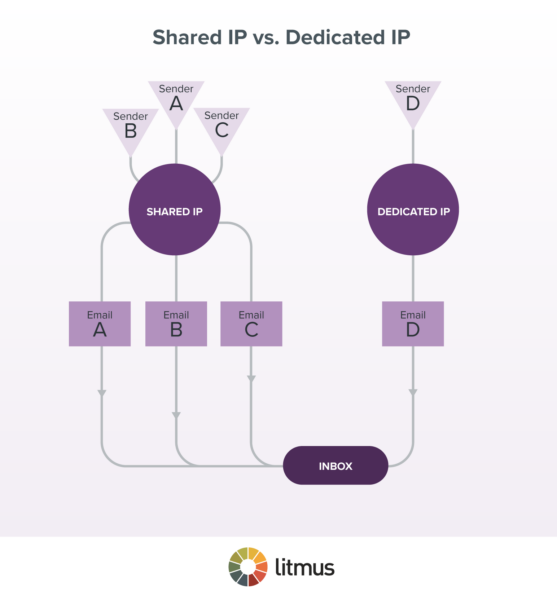Brief Overview of Dedicated IP Address
A dedicated IP address refers to a unique internet protocol (IP) address assigned exclusively to a single hosting account or user. Unlike shared IP addresses, which are commonly utilized by multiple users simultaneously, dedicated IPs are reserved for individual use. This allocation ensures that the assigned IP remains consistent and exclusive to the designated user.
Detailed Information about Dedicated IP Address
Dedicated IP addresses play a crucial role in various online activities, offering numerous advantages such as improved website performance, enhanced security, and simplified access to restricted content. By utilizing a dedicated IP address, users can establish a distinct online presence, mitigate the risks associated with shared IPs, and facilitate seamless access to critical services.
Detailed Analysis of Key Features
Key features of dedicated IP addresses include:
- Exclusivity: Dedicated IPs are solely allocated to a single user, ensuring a personalized online experience.
- Enhanced Security: With a dedicated IP, users can implement robust security measures, such as SSL certificates, to safeguard sensitive data.
- Improved Performance: Dedicated IPs can enhance website loading times and server response rates by eliminating potential congestion caused by shared hosting environments.
Types of Dedicated IP Addresses
Dedicated IP addresses can be classified into different types based on their allocation and usage:
| Type | Description |
|---|---|
| Static Dedicated | Fixed IP address assigned permanently to a specific user. |
| Dynamic Dedicated | IP address allocated dynamically but exclusively to a user. |
| Shared Dedicated | Multiple users share a pool of dedicated IP addresses. |
Ways to Use Dedicated IP Address
Dedicated IP addresses find applications in various scenarios, including:
- Hosting Websites: Ideal for hosting websites that require SSL certificates and demand consistent IP reputation.
- E-commerce Transactions: Ensures secure and reliable processing of online transactions.
- Remote Access: Facilitates remote access to private networks and resources without compromising security.
Problems and Solutions
Common challenges associated with dedicated IP addresses include:
- Cost: Dedicated IPs may entail additional expenses compared to shared alternatives.
- IP Reputation: Maintaining a positive IP reputation is crucial to avoid blacklisting and spam filters.
- Configuration: Users may encounter complexities in configuring and managing dedicated IPs.
These issues can be addressed through proper resource allocation, proactive monitoring, and adherence to best practices in IP management.
Characteristics and Comparisons
| Aspect | Dedicated IP Address | Shared IP Address |
|---|---|---|
| Exclusivity | Assigned to a single user | Shared among multiple users |
| Performance | Enhanced performance and reliability | Subject to fluctuations |
| Security | Enhanced security and privacy | Potential security risks |
Future Perspectives
As internet technologies continue to evolve, dedicated IP addresses are expected to remain relevant, catering to the growing demands for personalized online experiences, enhanced security, and optimized performance. Innovations in IP management and networking protocols may further refine the capabilities and functionalities of dedicated IPs.
VPN and Dedicated IP Address
Virtual Private Networks (VPNs) often offer dedicated IP address options to users seeking enhanced privacy and accessibility. By integrating dedicated IPs into VPN services, users can enjoy the benefits of both anonymity and exclusivity, ensuring secure and seamless online interactions while maintaining a consistent online identity.
Resources for Further Information
For additional insights and resources on dedicated IP addresses, consider exploring the following links:
- Understanding Dedicated IP Addresses
- Benefits of Dedicated IP Addresses
- Comparing Dedicated vs. Shared IP Addresses
This comprehensive guide provides valuable insights into the concept, applications, and implications of dedicated IP addresses, empowering users to make informed decisions regarding their online presence and security.


